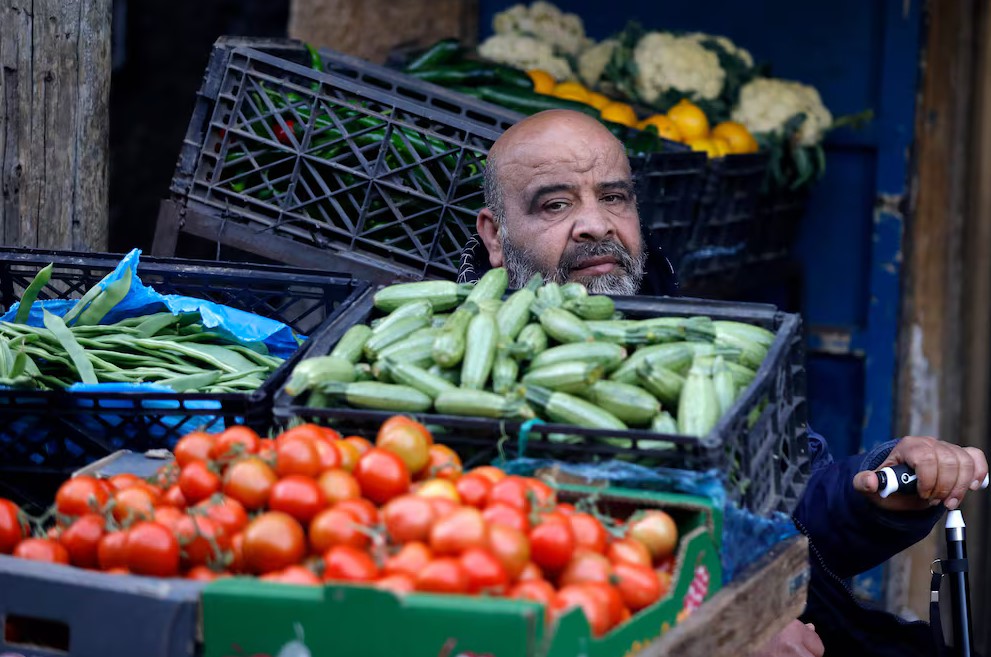As of January 31, about 201,000 jobs were lost in the Gaza Strip, accounting for about two-thirds of total employment in the enclave, the ILO and the Palestinian Central Bureau of Statistics said on Monday.
“In addition to the devastating and catastrophic loss of life and with the people of Gaza on the brink of mass starvation, the war in Gaza has also caused an economic and social crisis that is unprecedented,” stated ILO Regional Director for Arab States Ruba Jaradat.
In addition, 306,000 jobs – or more than one-third of total employment – were also lost in the occupied West Bank, where economic conditions have been severely affected since the start of the war.
In early February, the United Nations announced it will take decades and substantial international aid to rebuild the socioeconomic conditions in the war-torn Gaza Strip to pre-conflict levels.
The assessment came in a report by the United Nations Conference On Trade And Development (UNCTAD) that outlined the severe social and economic deterioration experienced in Gaza since the initiation of military operations following attacks by the Palestinian resistance group, Hamas, on Israel in early October.
“UNCTAD’s assessment underscores that restoring pre-conflict socioeconomic conditions in Gaza will take decades and requires substantial foreign aid,” the UN body announced in a statement.
The report, drawing upon innovative satellite imagery and official data, meticulously quantifies the extent of the conflict.
The Gazan economy had already contracted 4.5% in the initial three quarters of 2023, according to UNCTAD’s findings. But the military operation has exacerbated the decline, resulting in a staggering 24% GDP contraction and a 26.1% drop in GDP per capita for the entire year.
“If the current military operation were to end immediately with reconstruction starting right away and the 2007-2022 growth trend persists with an average growth rate of 0.4 per cent, it would take Gaza until 2092 just to restore the GDP levels of 2022 with GDP per capita and socioeconomic conditions continuously declining.”
“However, even with the most optimistic scenario that GDP could grow at 10% annually it would still take Gaza’s GDP per capita until 2035 to pre blockade level of 2006,” it added.
“The recovery of Gaza’s economy from the current military operation will demand a financial commitment, several times the $3.9 billion that resulted from the 2014 military operation in Gaza and will involve a concerted international effort to restore pre-conflict socioeconomic conditions.”
Prior to the recent military escalation, Gaza endured dire socioeconomic conditions, with more than 2 million residents confined to one of the world’s most densely populated areas and basic necessities such as clean water and electricity were scarce, and unemployment rates soared.
The ongoing military operation has exacerbated Gaza’s plight, displacing 85% of its population and halting economic activities, it noted.
UNCTAD stressed the urgent need to break the cycle of economic destruction, cautioning against a return to the pre-conflict status quo.
“The possibility and speed of recovery in Gaza will depend on ending military operation, donors’ engagement and subsequent growth performance. An optimistic scenario suggests that even with an immediate end to the fighting bringing Gaza back to the socioeconomic conditions that prevailed prior to the outbreak of the current confrontation would take decades without a properly funded recovery programme fully backed by the international community,” it said.
Furthermore, it emphasized the crucial role of immediate financial support to the Palestinian government, warning of a wider collapse without sustained governance and essential public services.
Ultimately, UNCTAD asserted that the resolution of Gaza’s crises hinges upon ending the military operation and lifting the blockade, advocating for a two-state solution in accordance with international law and relevant United Nations resolutions.
“Donors and the international community are urged to recognize that the constraints on the Palestinian economy, specifically in Gaza, extend beyond the recent confrontation,” it added.
Israel has launched relentless air and ground attacks on the Gaza Strip since a cross-border attack by Hamas in October.
The onslaught has killed nearly 32,000 victims, mostly women and children, displaced 85% of the blockaded enclave’s population and created conditions for famine.
The International Court of Justice (ICJ), in its interim ruling on the genocide case filed by South Africa, ordered Israel to prevent acts of genocide in Gaza and enable the provision of urgently needed basic services and humanitarian assistance to address the adverse conditions of life faced by Palestinians.
Tel Aviv also has to submit a report to the ICJ on all measures taken to give effect to the order within one month.
